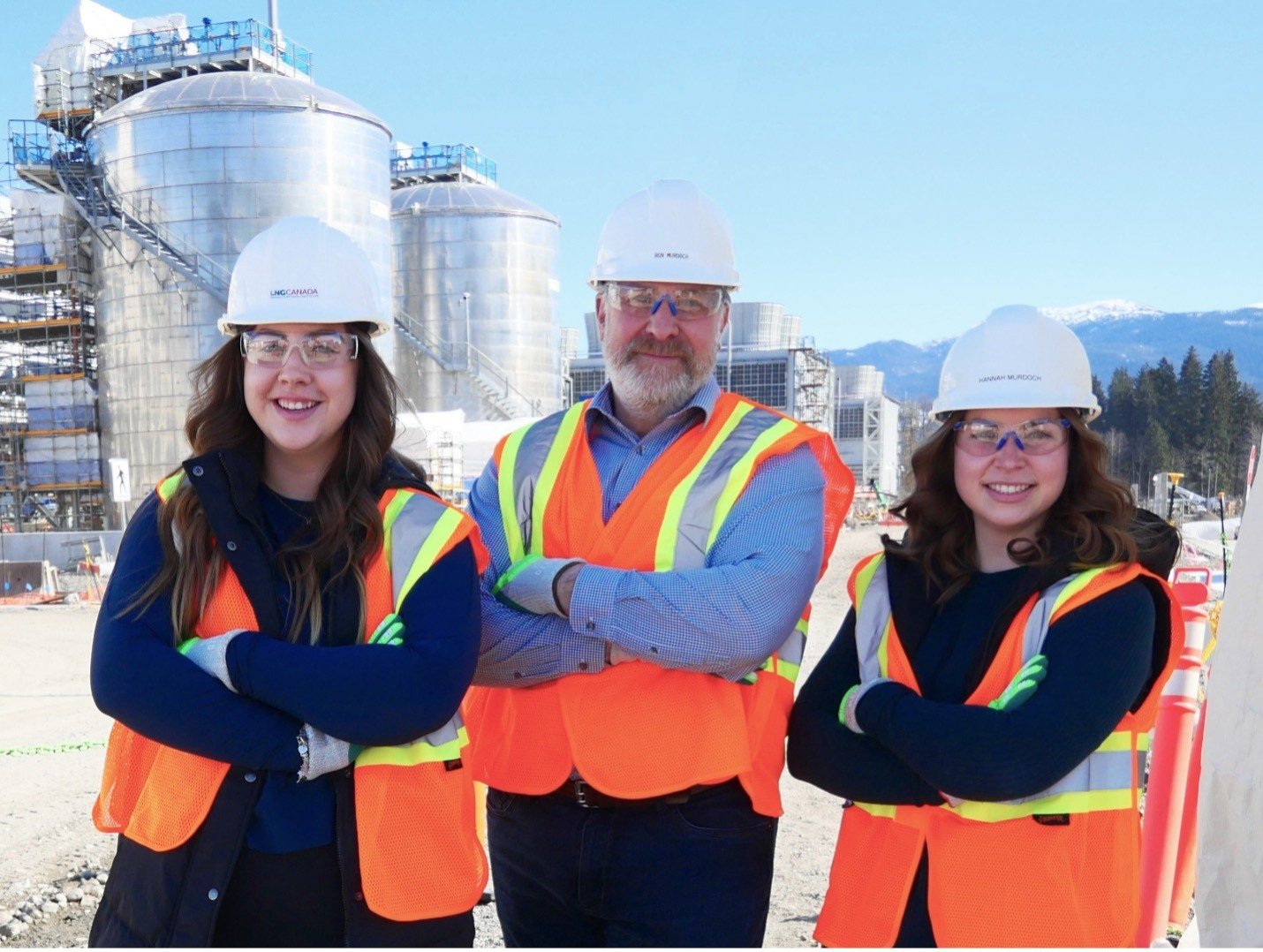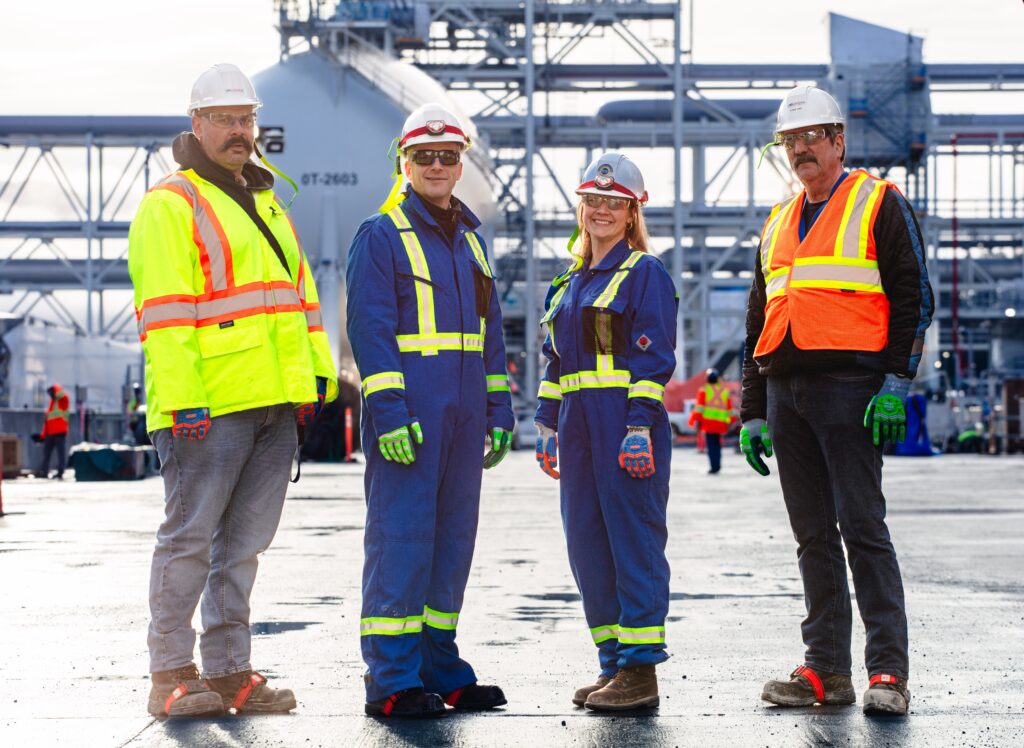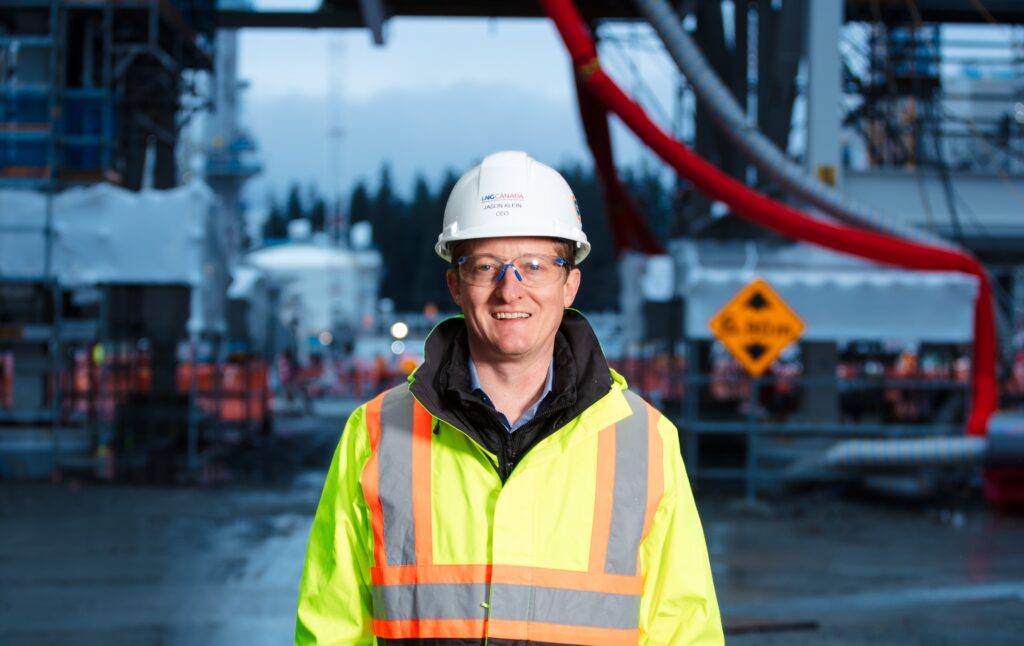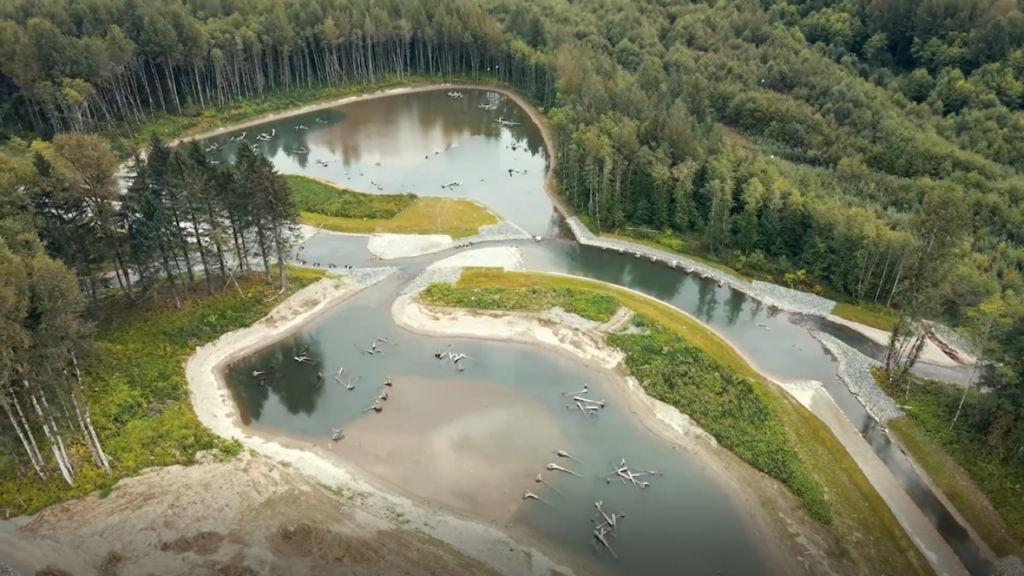Apr 13, 2023
We Are Family
Share

Ron Murdoch’s long career as a power engineer has taken him all over the world—he has worked in countries such as China, Iran, Trinidad and Germany—but he knows there’s no place like home. Specially, Kitimat, B.C., where he and his wife Michele settled decades ago, and where they raised their two daughters, Hannah and Haley.
Ron and Michele are both power engineers who worked at the former Methanex ammonia plant in Kitimat before it closed in 2006. Ron then started working further afield and eventually, overseas.
Coming full circle, he’s back at the former Methanex site, where LNG Canada is building and preparing to operate its new liquified natural gas terminal and export facility. Ron joined LNG Canada earlier this year, as a senior operations trainer. It’s a dream come true for the avid outdoorsman, who had hoped to land a gig at LNG Canada before his retirement.
The best part of his new role? He gets to work with Hannah and Haley, both of whom followed their parents’ footsteps to become power engineers. The two sisters recently completed their power engineering course work at a post-secondary college in northern B.C., and participated in a summer internship program with LNG Canada.
They formally joined the LNG Canada team in January, and are now being trained for specific power engineering roles, by none other than their father, Ron.
Hannah and Haley say their parents’ experiences as power engineers influenced their decisions to seek careers in the same field. “We saw all the opportunities that power engineering gave them,” Haley says. “It seemed really fulfilling and they both seemed really happy with their work.”
Power engineers operate and maintain power generation facilities, including but not limited to industrial plants and electrical power utilities, and in places such as hospitals, universities, government, and commercial businesses. Duties include starting up and shutting down power plant equipment, controlling switching operations, and working with others to regulate and co-ordinate transmission loads, frequency and line voltages. In short, they keep a facility’s lights on and its motors running.
Now more than 80% complete overall, the LNG Canada facility is preparing for decades of safe operations. We’ve invested in various workforce development activities–meaningful trades training and development programs designed to increase the participation of local area residents, Indigenous communities and British Columbians in opportunities including but not limited to the LNG Canada project.
One example is our unique power engineering readiness and training program, developed and offered in collaboration with Coast Mountain College and BCIT, and in consultation with the Government of British Columbia. The ongoing program is helping create a local workforce pipeline for LNG Canada while contributing to the power engineering skill pool in Northwest British Columbia.
With their parents’ support and guidance, Hannah and Haley found their own way to a power engineering education, and to LNG Canada’s Student Experience Program. “We both went to college with the LNG Canada project in mind,” Hannah says. “The summer internship was really our first step into that world. People at LNG Canada saw an opportunity for us. Everyone was really helpful making sure that we could come back [after college].”
“It’s exciting and rewarding to see British Columbians find opportunities to develop their skills and find excellent employment options in their home communities,” says LNG Canada Workforce Coordinator Nichol Cameron. “Workforce development initiatives such as our Student Experience Program allow local interns and co-op students like Hannah and Haley to gain experience in their fields of study, leading to full-time employment.”
The Murdoch sisters say they’re thrilled to be part of the LNG Canada team, and to be working together, with their father, in their hometown. “I’m going to have a career here in Kitimat, and that makes me super happy,” says Hannah. Working in an environment with a strong safety culture, helping produce lower-carbon, made-in-B.C LNG is especially appealing, adds Haley.
As for Ron, he’s happy to be home again. “And working with my daughters, and sharing with them what I’ve learned over the course of my 33-year career? Well, I’m over the moon.”




